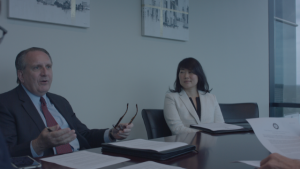How to Win Your Next Mediation, Part 2
Wed, Aug 8th, 2018 | by Miles Mediation and Arbitration | Article | Social Share
by John K. Miles, Jr., Esq.
Presentation is a huge part of obtaining a successful result at mediation. The attorneys who tend to succeed at mediation make their hard work and preparation apparent in how they present their client’s case at mediation.
An effective presentation accomplishes two things:
- It lets the other side know that if the case doesn’t resolve at mediation then the case will be persuasively presented to a jury. As a mediator, I have the opportunity to be in both rooms. I can attest to the fact that attorneys who have earned a well-deserved reputation for presenting an effective case at trial obtain better results at mediation.
- Effective presentation at mediation demonstrates to the client that they retained the right lawyer. Those on the defense side want to earn the next file from their client. There is a long line of attorneys who would love to take that next file away. Being prepared and demonstrating that fact by your command of the case at mediation will help ensure your client’s loyalty as well as great results at mediation. For those representing plaintiffs an effective presentation of the case has deeper meaning for their clients. Of course plaintiffs need to be reassured they hired the right attorney but they also need to know that that attorney believes in them and their cause. I have sat in opening sessions and watched a plaintiff’s continuance fall as it becomes apparent through their attorneys presentation that the attorney has no mastery of the facts and no passion for the case. It doesn’t matter if it’s a $5,000 or a$5,000,000 case. The plaintiff needs to know you believe in their case and will fight for them.
The Elements of an Effective Presentation
A good presentation often begins with compiling a thorough premeditation statement and providing it to the mediator prior to the mediation. This is particularly important in cases that involve complex legal or medical issues. A summary of the evidence is helpful, but the most successful attorneys include highlighted portions of the relevant medical records as well as relevant portions of medical or expert depositions. The seasoned attorney will also provide arguments and evidence likely to be presented by opposing counsel. A well-organized and efficient mediation statement can go a long way toward ensuring a successful result at mediation.
A good presentation can also, but does not necessarily, need to be made during the opening session. I happen to find an organized and detailed opening presentation impactful. However, some attorneys prefer to give a brief opening and have me deliver information to the other side throughout the course of the mediation. Whatever the preference, the successful attorney makes clear that they know the case and are prepared to move forward to trial if the case doesn’t settle at mediation.
Gone are the days when an attorney can hope to succeed at mediation without being prepared. It is possible to win for your clients at mediation but those results have to be earned by attorneys who take mediation seriously and are willing to work hard to achieve a successful result for their clients.
Click here to read “How to Win Your Next Mediation, Part 1.”
ABOUT THE AUTHOR
 John Miles, Esq. is the CEO of Miles Mediation & Arbitration. He oversees neutral training and development at Miles. In addition to his executive duties, he mediates high-value and complex matters on request at a per diem rate.
John Miles, Esq. is the CEO of Miles Mediation & Arbitration. He oversees neutral training and development at Miles. In addition to his executive duties, he mediates high-value and complex matters on request at a per diem rate.


